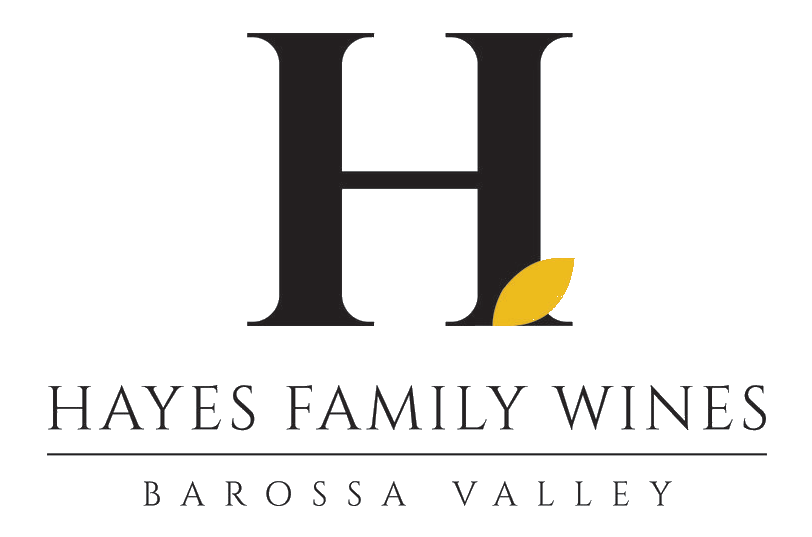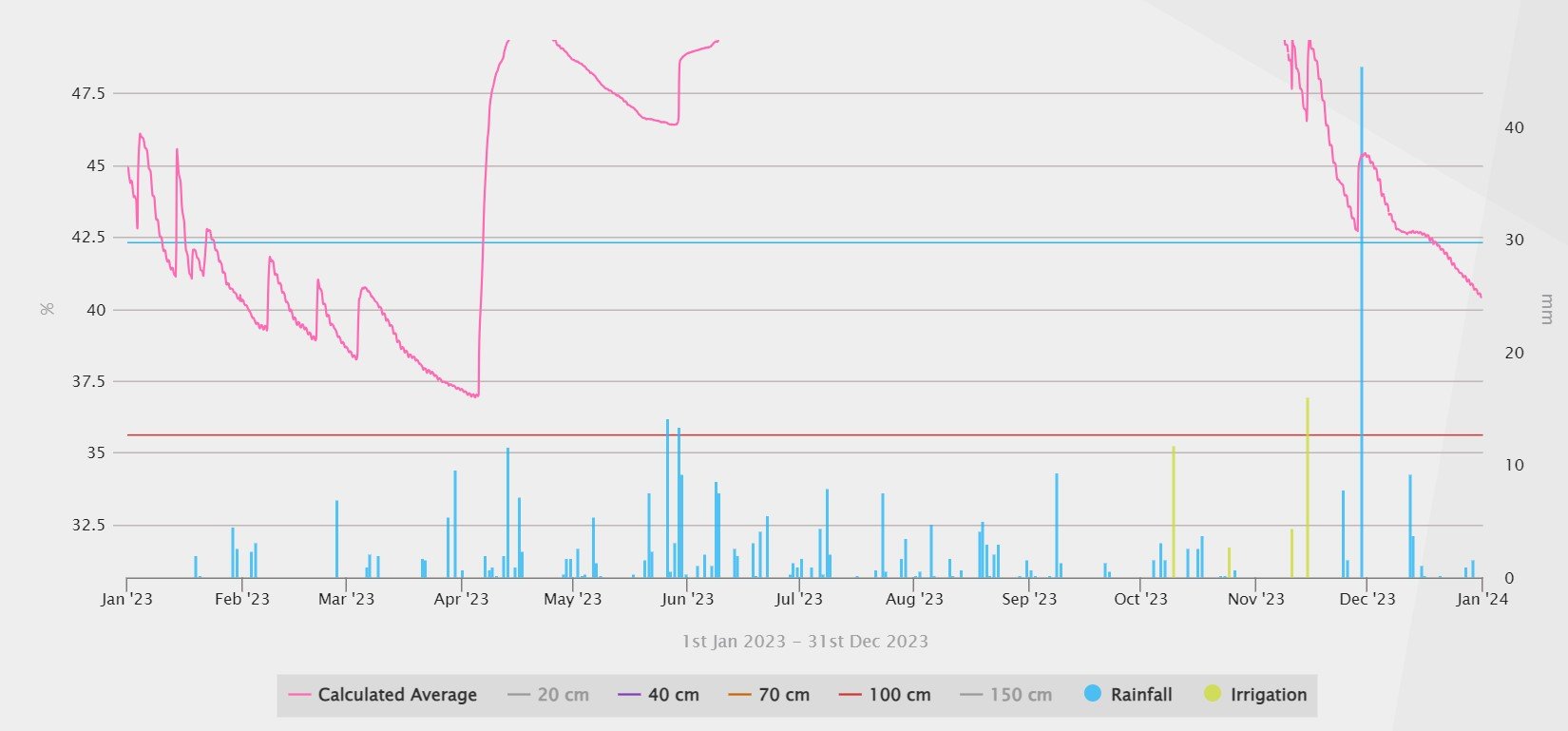Sustainability - A journey in the Vineyard, Winery and Cellar Door
The View South from Block 8, natural grass in the rows, mulch under the vines, and our plantings of natives down the Eastern (left) edge
Sustainable FARMing
GREENWASHING
It is one of our great frustrations, “greenwashing” the public with unsubstantiated claims that are being used to drive sales. I like to think that in some cases it is naivety or lack of knowledge, but that is not always the case. In the Organic space, we have all seen these things written: farming organically; organic principles, even organic. But unless the business is certified, independently audited and assessed, we believe they should stop making the claim. In the case of Sustainable, we all try and do the right thing by our vineyards, our people and the community, but again, if a business is making the claim it is fair that they say what they are doing that supports it.
In the case of organics, incredibly the word is not protected by law in Australia. As such, people can claim organic without any legal requirement to be certified as such. The organics boards and industry bodies (of which we actively play a part) are trying to change this. In the case of sustainability, a membership program has been established (Sustainable Wine Growing Australia) to certify businesses. As a Certified Member, we and other members are required to report a wide range of annual metrics and undergo a periodic audit.
WHAT are we doing at Hayes FAmily Wines
At present, our Estate Vineyards and Winery are Certified Organic and Certified Sustainable. We are seeing a mass move towards Sustainable Certification. Organics is lagging.
In the Barossa, we have seen that the big companies have mandated Sustainable Certification of their contracted vineyards. By association, this has meant that our larger growers have all become or are in the process of being certified.
Our smaller growers, namely Prayer Garden and Glengrae, produce less than 2 tonnes per year of grapes. Their principle businesses are not grapes and certification is a broad application. I would not expect these businesses to be Certified Sustainable.
We have a wonderful relationship with our growers, and we are supportive of their moves towards more sustainable operations. The Schulz’s have obtained organic certification for our Shiraz and Cabernet blocks on Primrose. We would expect Block 15 be Certified in the next year.
IT IS AN ONGOING JOURNEY
In our view, Sustainability is not a milestone, but a journey of continual improvement. Our metrics would suggest we are best in class, but we recognise there is a need to continue the focus, to improve and help others improve. Notwithstanding this, we have made a number of improvements since our original certification in 2021. Our next audit is scheduled for 2024.
Solar Energy and Battery Support
Solar panels have been on our roof at the winery for more than 10 years. However, the true benefits have only recently been realised, both financially and environmentally, with the installation of battery storage. Although we are not off the grid, most of our electricity consumption across the house, winery, vineyard and cellar door comes via the solar and battery combination.
A Good Day in the Barossa
soil Moisture monitoring
We introduced soil moisture monitoring devices in the vineyard a few years ago and, like all technology, it takes some time to get used to what it is telling you and importantly what to do with that information.
Traditional decisions to apply drip irrigation are driven by the real time observations of vine stress. This can be a lack of shoot growth, or alternatively stressed leaves, or in more extreme conditions when the vines shut down and drop their leaves and stop ripening. Vines, even old vines can not only shut down ripening, but can die in periods of extended heat, particularly when we experience multi year droughts. We saw this in 2020 in the Barossa Valley.
The charts allow us to understand the depth of the water availability in the soil, rain and other additions and the impacts or depths those resources got to in the soil profile. Ultimately, the technology leads to more timely and better decisions being made that results in healthy vines, better grapes and ultimately less water usage.
12 Month Moisture Graph (Block 1 Old Shiraz)
ground cover, compost and mulch
Conventional farmed vineyards in the Barossa lean towards either working the vineyard floor (traditional pre-chemical process) or spraying under and around the vines to remove competition. The slope of our block in Stone Well essentially eliminates option 1 in most years due to the likely soil erosion, and being certified organic, we cannot use artificial insecticides and pesticides. So we are left with mowing under vines and up the rows.
The key reason for this in dry years is competition for water. The Barossa can be very dry, which often minimises disease pressure, but equally, weeds can compete for the limited water with the vines. For us, we have taken the approach of fostering the growth of natural grasses which tend to die off during the heat of summer (rather than introduced species which often stay green) and more recently mulch and compost under the vines in the exposed areas. This reduces the risk of erosion, keeps surface temperatures down and retains more moisture. This has proved effective on the hillside and this year we expanded this to the field white block.
revegetation program
Our small estate block in Stone Well as been managed as a vineyard since at least the 1940s, possibly, and probably much longer. Being only 15 acres, the block is fully planted to vines. But given our farming techniques, we have taken the opportunity to revegetate any available space. We see natives as the right approach, on the road verge, along the eastern border and around the house and winery.
ENERGY Efficient equipment
Being a small vineyard, energy usage is limited, but in the winery, particularly during warm vintages, energy usage can be significant. We have taken significant steps to upgrade equipment (particularly chilling equipment) to more modern energy efficient units. Not only do these units have reduced energy consumption, but by more timely adjustment to the temperature of fermenters, we can produce better wine by maintaining better fruit flavours.
We are looking to implement automation on each of the fermenters for the 2024 vintage. This should further reduce our energy consumption with more timely applications without the need for manual intervention.
DO we need to cARE?
Our focus on Organics and Sustainability have not been driven by marketing but rather a desire to the right thing for the right reasons. Our focus has always been on making the best possible product with the smallest impact. Quality has always been our priority.
Since we started this journey almost 10 years ago, things have changed. Research would suggest for most Australians sustainability was not a major priority. We have a very green view of what we do in Australia. Fortunately Australia and probably more so, New Zealand are seen as green, our isolation, low population, and probably short history of European settlement all contributing positively to this view.
Internationally however more and more consumers are seeking proof behind claims. Claims, whether sustainability, organics, biodynamic, carbon neutral are considered important in consumer and business buying decisions. We can expect this to change in Australian consumer preferences as time progresses.
Ultimately, it is a personal decision. In our wines, there is no down side in our view to doing what we do. We believe quality is positively impacted by our actions.
WHAT SHOULD YOU LOOK FOR?
I would always look for evidence of External Certification. Claims are easy to make particularly when not justified. Ask questions, do not expect perfect answers, honest claims have nothing to hide from, it is a journey not an outcome. We should be looking to do things better, cleaner and in ways that have less impact on the environment for us and future generations.







